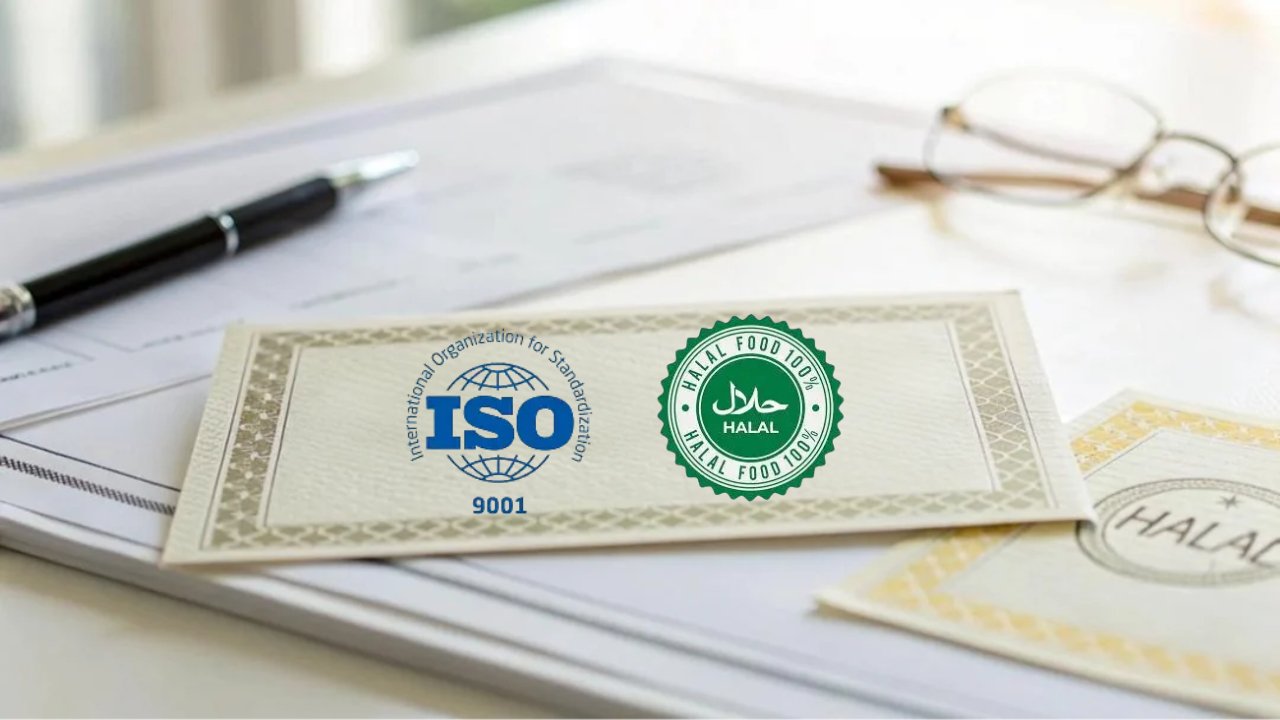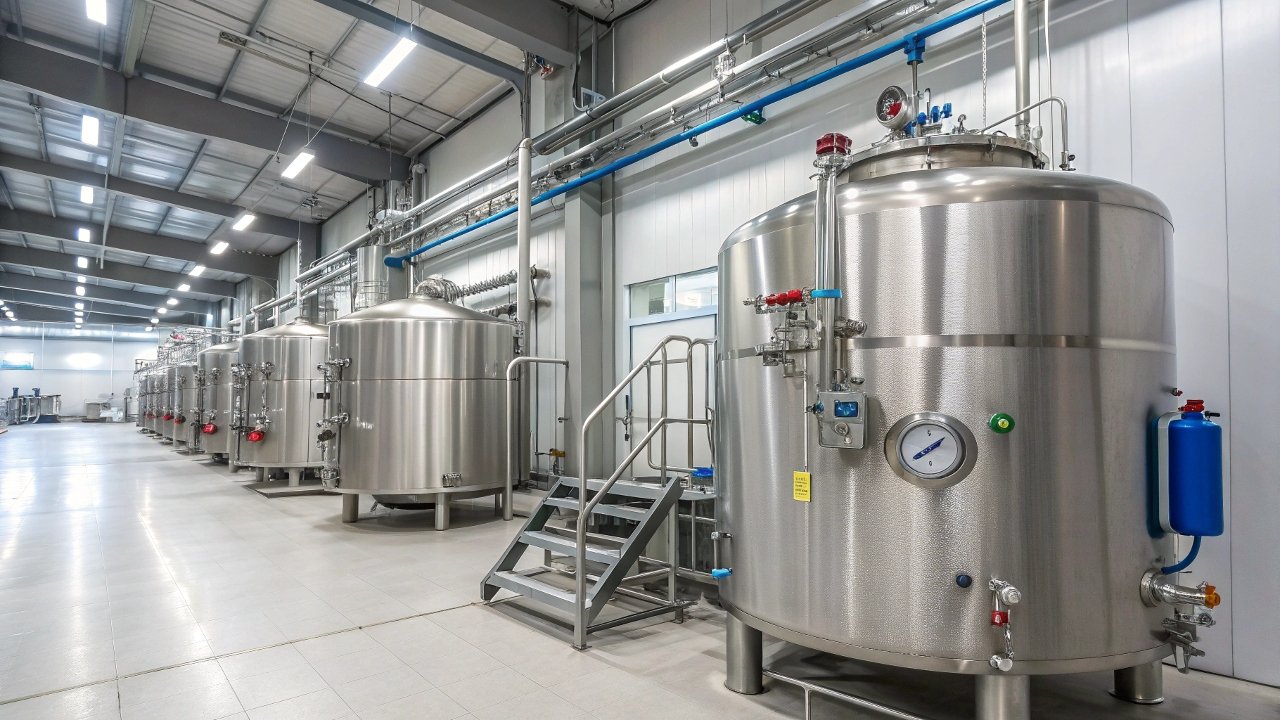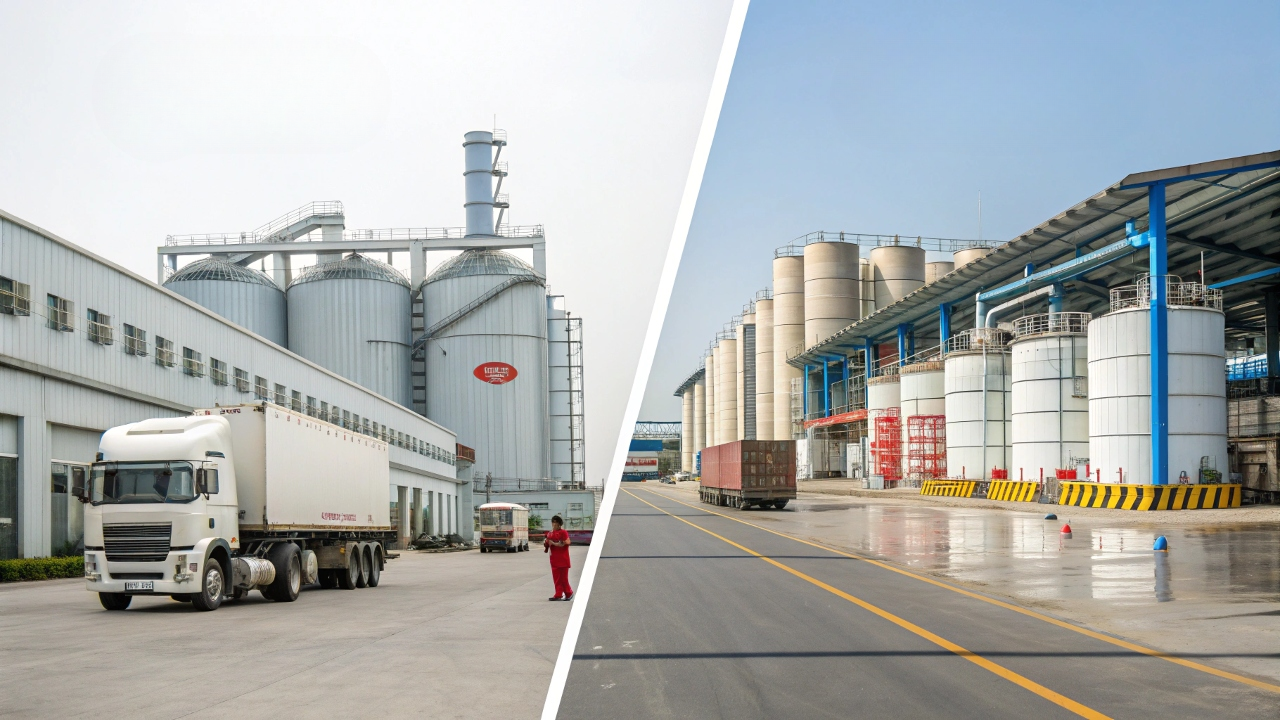Need a reliable xanthan gum supplier? Worried about inconsistent quality or delivery delays? Let's break down how to choose a great partner.
To choose a great xanthan gum supplier, verify their certifications, check their real production capacity, ask smart questions, judge their response time, and compare their true value.

We help serious buyers connect with reliable suppliers for their global business. The wrong supplier can cause massive problems. Choosing the right partner from the start is critical to your success.
How do you verify a Xanthan Gum supplier's certifications?
See logos on a supplier's website? How do you know if they're real? Let's cover how to properly verify these important documents.
To verify certifications like ISO or Halal, get a full copy of the certificate. Check the name, date, and scope. Then, verify the certificate number directly with the issuing body's website.

Certifications are proof of quality and safety. For my clients, having the correct, valid certificates (like ISO, Halal, Kosher) is non-negotiable. An expired or fake certificate can get a shipment rejected, which is a major headache.
Here’s the simple verification process:
- Request the Certificate: Ask for a full, clear PDF copy. A professional supplier will send it quickly.
- Check the Details: Look at the company name, the expiration date, and the "scope." The scope must cover the manufacturing of xanthan gum.
- Verify Independently: This is the most important step. Go to the website of the organization that issued the certificate (e.g., the Halal authority or ISO registrar). Use their online tool to check if the certificate number is valid.
Key Xanthan Gum Certifications:
| Certification | What It Matters For |
|---|---|
| ISO 9001 | Consistent quality management system. |
| FSSC 22000 / ISO 22000 | Food safety management system (essential for food). |
| Halal / Kosher | Market access to specific religious dietary markets. |
| Non-GMO | "Clean label" products, especially for the EU. |
Why is it important to check a factory's production capacity for Xanthan Gum?
Does factory size really matter? Yes, it's critical. Let's see why checking production capacity is so important for your business.
Checking a factory's production capacity ensures they can handle your orders, manage sudden demand, and maintain quality. Big capacity usually means more stability and reliability.

A supplier's promise to deliver is meaningless if their factory is too small or overworked. For a large distributor, a supplier failing to deliver is a disaster.
A factory's true capacity1 affects everything.
- Quality: A factory running at its absolute limit might cut corners, leading to inconsistent quality. A factory with spare capacity can maintain its standards even when busy.
- Flexibility: Your demand can change. A large-capacity supplier can handle your sudden large orders without issues.
- Price: Large producers often have better costs due to economies of scale2, which can mean more competitive and stable prices for you.
To gauge their real size, ask about their total annual output in tons and the number of production lines they operate. More lines mean more flexibility and less risk of delays.
Key Questions on Capacity:
| Ask Your Supplier... | What to Look For in the Answer |
|---|---|
| "What is your total annual production capacity?" | A clear, confident number (e.g., "20,000 tons per year"). |
| "How many production lines do you operate?" | Multiple lines, which shows redundancy and flexibility. |
| "What is your lead time for a 20-ton order?" | A reasonable time (e.g., 10-15 days), not 45+ days. |
| "Can you handle a sudden large order?" | A "yes" answer, showing they have spare capacity. |
What are the best questions to ask a potential Xanthan Gum supplier?
You're talking to a new supplier. What do you ask? Here are the best questions to reveal their true capabilities as a partner.
Ask about their QC process, raw material sourcing, how they handle complaints, and their main export markets. Good, transparent answers show they are a competent and professional supplier.

Think of your first conversation as a job interview for the supplier. You need to ask smart questions to filter out the bad ones.
Focus your questions on these four key areas:
- Quality Control3: Ask, "Describe your QC process." Look for specific testing at multiple stages: raw material, during production, and the final product. They should test for viscosity, mesh size, purity, and microbes in every batch.
- Problem Solving4: Ask, "How do you handle a quality complaint?" A good partner has a clear process for investigating the issue and offering a fair solution. They don't make excuses.
- Sourcing: Ask, "Where do your raw materials come from?" and "Do you offer a non-GMO option?" This shows transparency and their ability to meet specific market needs, like for Europe.
- Logistics: Ask, "What are your main export markets?" If they already ship to your region, they will be familiar with the documentation and customs, reducing the risk of delays.
Good Questions Framework:
| Category | Key Question to Ask | A Good Answer Looks Like... |
|---|---|---|
| Quality | "Describe your quality control process." | Mentions specific checkpoints and batch testing. |
| Problem Solving | "How do you handle a client complaint?" | A clear process for investigation and resolution. |
| Logistics | "What are your main export markets?" | They have experience shipping to your region. |
What does a supplier's response time tell you about their Xanthan Gum business?
You sent an inquiry. How long do you wait for a reply? A supplier's response time tells you a lot about how they operate.
A supplier's response time shows their professionalism and how much they value your business. A fast, detailed reply is a great sign. A slow or lazy reply is a major red flag.

Good communication is the foundation of good business. How a supplier communicates with you before you place an order is the best they will ever be.
Pay attention to speed and quality:
- Speed: A professional supplier should reply within 24 hours. If they are slow when trying to win your business, they will be even slower when you have a problem.
- Quality: A fast reply is useless if it's lazy. A good response answers all your questions, provides detailed information (like a spec sheet), and is written professionally. A bad response just gives a price or ignores your technical questions.
If a supplier is consistently slow or sends low-quality replies, it suggests they are disorganized or don't care enough. Move on to a supplier who values your time and business.
Response Quality Chart:
| Response Type | What It Means | Action to Take |
|---|---|---|
| Fast & Detailed | Professional, efficient, client-focused. | Good Partner. |
| Fast & Lazy (Vague) | Unprofessional or lacks technical knowledge. | Be Cautious. |
| Slow or No Response | Disorganized or not interested in your business. | Disqualify. |
How can you compare Xanthan Gum suppliers from China and the US?
Trying to decide between a supplier from China versus the US? Let's quickly compare them on the most important factors for your business.
When comparing suppliers from China and the US, look at price, quality, and logistics. Chinese suppliers usually have much better prices, while US suppliers may offer easier communication for some buyers.

For a global buyer, the goal is always the best overall value. Both China and the US are major producers, but they have different strengths.
- Price: China has a major advantage. Prices are generally much more competitive due to economies of scale and lower production costs.
- Quality: Both can be excellent. Top Chinese suppliers meet all international standards (ISO, etc.). US quality is also very high. The key for China is you must verify your specific supplier5.
- Logistics: For buyers in the Middle East, Asia, or Europe, shipping from China is very efficient and common. For buyers in North America, a US supplier will have faster delivery.
- Communication: A US supplier removes the language barrier for English speakers. However, top Chinese suppliers have professional, English-speaking export teams.
For an international buyer looking for competitive prices on bulk orders, a top-tier, well-vetted Chinese supplier often provides the best value. The "well-vetted" part is key—and that's where a partner like FINETECH helps.
Quick Comparison: China vs. US
| Factor | Chinese Supplier | US Supplier |
|---|---|---|
| Price | Very Competitive | Higher |
| Quality | Excellent, but requires verification | Consistently High |
| Logistics | Excellent for global sea freight | Best for North American domestic freight |
| Flexibility | Often more flexible on MOQ | Can be more rigid |
Conclusion
Choosing a great supplier means checking their certifications, capacity, and communication. Verifying their claims and asking smart questions will lead to a reliable partner and a stronger supply chain.
-
Understanding a factory's true capacity is crucial for ensuring reliable supply and maintaining quality standards. ↩
-
Exploring economies of scale can reveal how larger producers can offer competitive prices, benefiting your business. ↩
-
Understanding Quality Control is crucial for ensuring product reliability and safety, making it a key area to explore. ↩
-
Exploring effective problem-solving strategies can help you identify reliable suppliers who prioritize customer satisfaction. ↩
-
Learn effective strategies for verifying suppliers to ensure quality and reliability in your sourcing decisions. ↩

